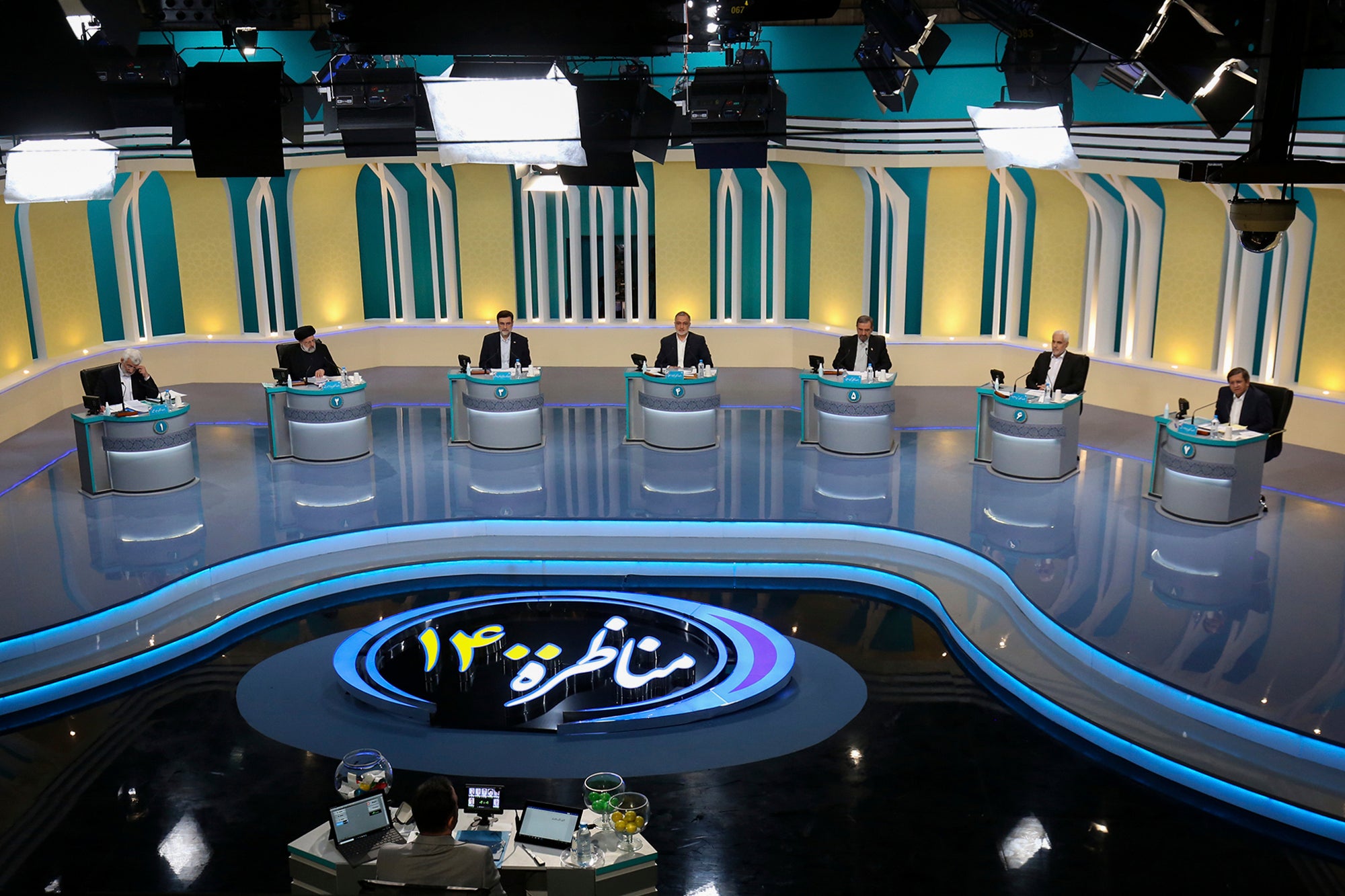Iran debate puts problems on one man: the outgoing president
Iran’s seven presidential candidates have put all the problems of the Islamic Republic squarely on the shoulders of the one man who wasn’t there to defend himself: Outgoing President Hassan Rouhani

Your support helps us to tell the story
From reproductive rights to climate change to Big Tech, The Independent is on the ground when the story is developing. Whether it's investigating the financials of Elon Musk's pro-Trump PAC or producing our latest documentary, 'The A Word', which shines a light on the American women fighting for reproductive rights, we know how important it is to parse out the facts from the messaging.
At such a critical moment in US history, we need reporters on the ground. Your donation allows us to keep sending journalists to speak to both sides of the story.
The Independent is trusted by Americans across the entire political spectrum. And unlike many other quality news outlets, we choose not to lock Americans out of our reporting and analysis with paywalls. We believe quality journalism should be available to everyone, paid for by those who can afford it.
Your support makes all the difference.Iran's seven presidential candidates on Tuesday put all the problems of the Islamic Republic squarely on the shoulders of the one man who wasn't there to defend himself: Outgoing President Hassan Rouhani
After a raucous first debate, the aspirants on a televised debate focused their attention on Rouhani and mocked his administration's “hope” campaign that surrounded its now-tattered 2015 nuclear deal with world powers.
That allowed candidates to link former Central Bank chief Abdolnasser Hemmati to Rouhani while allowing hard-line judiciary chief Ebrahim Raisi believed to be the race's front-runner, to largely escape criticism.
The looming June 18 election will see voters pick a candidate to replace Rouhani, term limited from running again. The election comes amid tensions with the West as negotiations continue to try and resuscitate the nuclear deal that then-President Donald Trump unilaterally withdrew America from in 2018.
Hemmati, clearly frustrated by constantly being linked to Rouhani, even brought up Trump himself in an attempt to defend himself.
"Some of you must send a letter to Trump and tell him, ‘Mr. Trump, be happy, everything you did against the people of Iran, we blamed on Hemmati,’” he said.
The debate comes as Iranian authorities hope to boost turnout, long held by officials as a sign of confidence in the theocracy since the country's 1979 Islamic Revolution. The state-linked Iranian Student Polling Agency has projected a 38% turnout by the country's 59 million eligible voters, which would be a historic low amid a lack of enthusiasm by voters and the coronavirus pandemic.
Raisi, believed to be a favorite of Iran's Supreme Leader Ayatollah Ali Khamenei brought up the deficit of trust by the public.
“People’s living conditions have been damaged badly. People’s businesses have been damaged gravely. People’s trust in the government maybe is at the lowest level in years and has been damaged severely," he said. “We strongly need the social asset.”
But criticism remained almost always focused on Rouhani. Hard-liner Mohsen Rezaei, ignoring a question posed to him by the moderator, cuttingly said “you cannot eat hope” in a swipe at the president. He put corruption concerns squarely on Rouhani's government as well.
“Mafia kings are like vacuum cleaners and vacuuming up all the country’s resources," Rezaei said.
Even Mohsen Mehralizadeh, the sole reformist approved for the election, criticized Rouhani's Health Ministry for being “negligent” in its response to the coronavirus.
For his part, Hemmati sought to distance himself from Rouhani, describing himself as being fired from the Central Bank in May after he declared his candidacy.
“I am not Rouhani’s representative," he insisted.